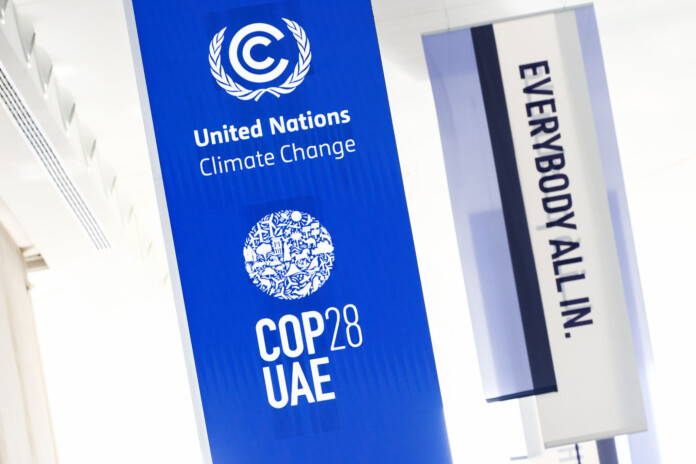At COP 28, UN Secretary-General Antonio Guterres warned that humanity is in “deep trouble.” “Things are moving so fast that a full month before the end of the year, we can already declare that 2023 is the hottest year recorded in human history,” Guterres said in a video message to delegates in Dubai.
“We are living through climate collapse in real-time – and the impact is devastating,” he said, also pointing out rising sea levels, record high sea surface temperatures and the loss of glaciers globally.
“This year has seen communities around the world pounded by fires, floods, and searing temperatures. Record global heating should send shivers down the spines of world leaders. And it should trigger them to act,” he said.
The climate summit gathers representatives from some 200 states.
This year’s COP28 climate talks began with a moment of silence to honour the victims of the Gaza war and Saleemul Huq, a well-known Bangladeshi climate researcher who recently died.
Germany and UAE pledge $200m to compensate for climate damage
Germany and the United Arab Emirates pledged $200 million to compensate particularly vulnerable countries for climate damage, as the UN’s climate summit kicked off in Dubai on Thursday.
On the first day of the summit, Germany and the United Arab Emirates announced both would contribute $100 million each to assist countries most affected by climate change.
These nations, such as island states, expect rich industrialised countries in particular to help since they are the biggest polluters.
Britain, the United States and Japan also made smaller financial pledges. This is the first time that money has been channelled into the loss and damage fund, which was agreed last year at the COP27 climate talks in Egypt.
Earlier on Thursday, the UN’s World Meteorological Organization (WMO) said 2023 would top 2016 as the hottest year on record, with the global mean temperature rising 1.4 degrees Celsius above the pre-industrial average.
“Greenhouse gas levels are record high. Global temperatures are record-high. Sea level rise is record high. Antarctic sea ice is record low,” WMO chief Petteri Taalas said.










